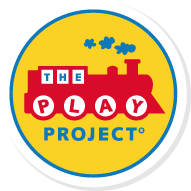The PLAY Project wishes all of you health, happiness, love, and all the best for the New Year! We are ringing in 2013 with an updated Mission, Vision, and Values set to reflect our goals for the future and the core values of our organization. We are excited to share our new Mission, Vision, and Values with you here:
Our Vision:
The PLAY Project envisions that all parents will be supported in developing a joyous relationship with their children with autism in a way that will help each child reach their full potential.
Our Mission:
The PLAY Project’s mission is to train a global network of pediatric professionals to deliver an evidence-based, low-cost, intensive developmental intervention to families of young children with Autism Spectrum Disorders.
Our Values:
Family-Centered Developmental Intervention:
- Families are at the center of care
- Intervention strategies grow out of an understanding of child development and respect for a child’s emotional life and intrinsic motivations
- All children, including those with Autism Spectrum Disorders (ASD), learn and grow through play
- Parents can build strong relationships with their child with ASD by responding to their child’s cues, joining their child’s interests, and engaging in playful interactions
Access and Delivery to Families:
- All families who have children with ASD deserve access to community-based therapeutic and educational services that are evidence-based and affordable
- In order to deliver intensive early intervention services in the most efficacious and practical way, we advocate for: 1) the use of high quality train-the-trainer models; 2) broad dissemination through established systems of care (e.g. Early Intervention, Community Mental Health, etc.); and 3) the use of cutting edge technologies.
Evidence-Based Practice:
- In accordance with the National Academy of Sciences recommendations, children with ASD benefit from intensive intervention that is: 15-25 hours per week; has an adult:child ratio of 1:1 or 1:2; is engaging and strategic; and begins between the ages of 18 months and 5 years of age.
- Evidence based practice integrates the best scientific research, professional expertise, and client choice (link to Sackett, et al. 2000)
- Early identification, paired with intensive intervention best supports children with ASD in reaching their full potential
- Professionals are most effective when they empower and support parents to implement interventions in the natural environment of the home
- A multidisciplinary approach (SLP, OT, MSW, PSY, etc.) is necessary to address the wide-ranging needs of children with ASD
